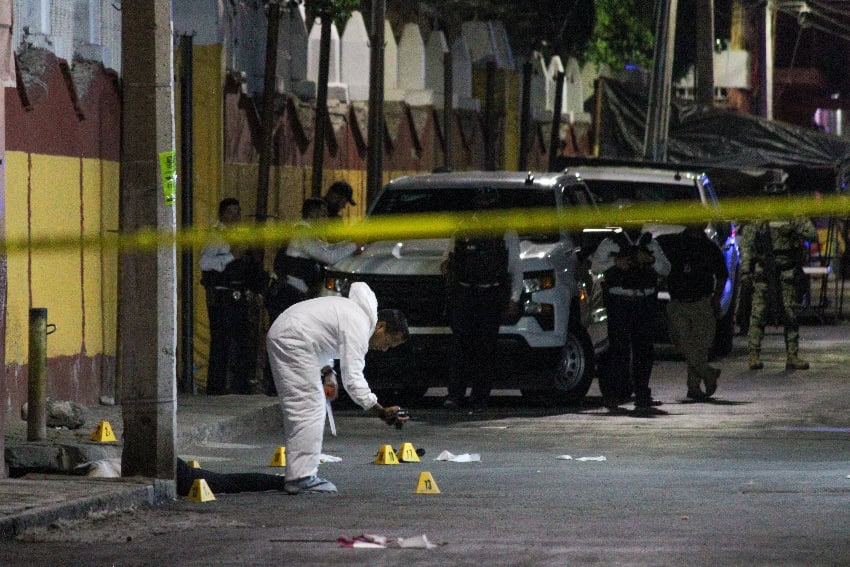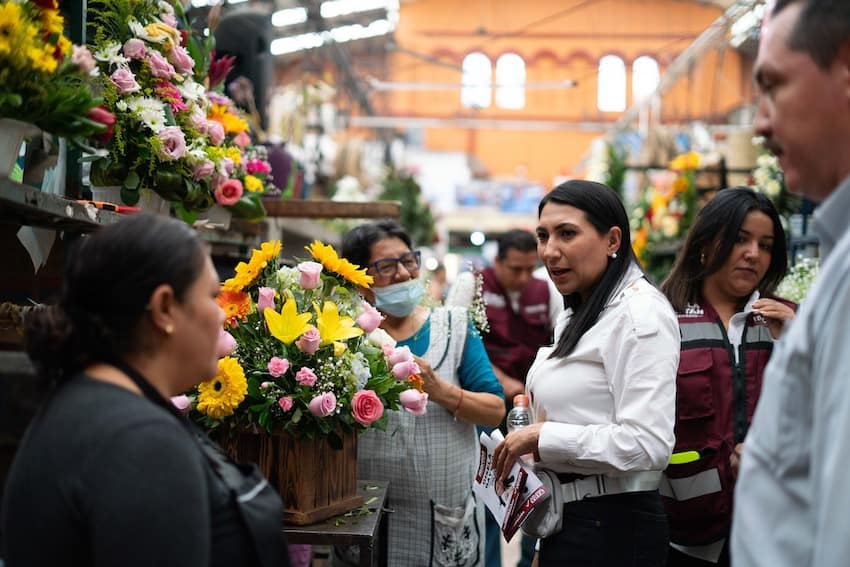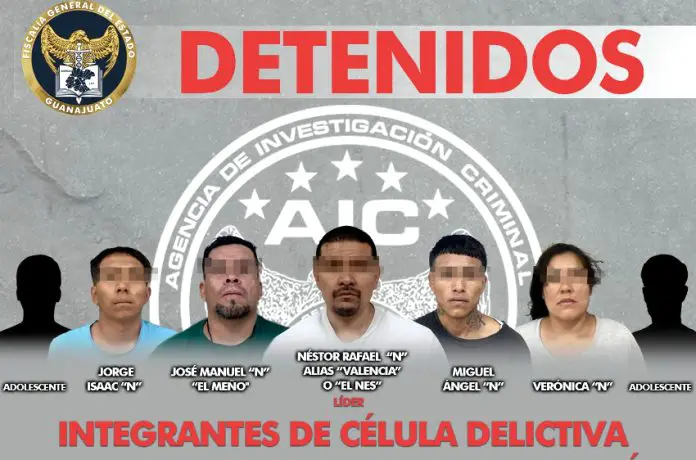Authorities in Guanajuato have arrested seven people in connection with the murder of Gisela Gaytán, the Morena party’s candidate for mayor in the city of Celaya.
The 37-year-old candidate was shot and killed on April 1 while campaigning on the street in San Miguel Octopan, a community about 10 kilometers northeast of downtown Celaya.

The Guanajuato Attorney General’s Office (FGE) announced on Wednesday the “breaking up of a criminal cell” linked to the murder of Gaytán and several other crimes in the Laja-Bajío area of the state.
Four men, one woman and two adolescents were detained and are now in custody awaiting legal proceedings. The FGE said in a statement that the leader of the criminal cell, which it didn’t identify by name, was among those arrested. He was identified as Néstor Rafael “N” and is also known as “Valencia” and “El Nes.”
The other six people detained were described as sicarios — hitmen or hired assassins.
The FGE said that Guanajuato’s Specialized Homicide Investigation Unit established the involvement of those arrested in the homicide of the mayoral candidate through the use of “technological, scientific and computing tools” and “the analysis of hundreds of hours of video.”

It said that the state Criminal Investigation Agency carried out several operations to search for “the alleged perpetrators of the murder,” adding that once they were located “the capture of the leader and those who acted as sicarios” was executed.
The FGE said that “information analysts” and “agents in the field” assisted the location of the suspects. It also noted that “expert ballistics opinions, interviews and hundreds of hours of analysis of telephone records” also informed the investigation and search for the suspects.
The FGE also said that police identified and seized “the motorcycles and the vehicle directly involved in the murder.”
It didn’t specify the other crimes the suspects allegedly committed, but said there is “information about their involvement in multiple high impact criminal events in the Laja-Bajío area,” which includes Celaya and several other municipalities where the Santa Rosa de Lima Cartel is known to operate.
Gaytán – who didn’t have government protection even though she asked for it – is one of more than 30 candidates or political aspirants who have been murdered during the electoral period leading up to elections on June 2.
Twenty-two candidates were attacked in April, according to the organization Data Cívica. Three of that number — including Gaytán — were murdered, it said.
Most murders in Mexico — including those of political candidates — go unsolved.
Electoral violence in Mexico is most common at the municipal level, at which crime groups often seek to exert pressure on governments and buy off police.
Guanajuato is Mexico’s most violent state in terms of total homicides, and Celaya is a notoriously violent city.
Mexico News Daily
